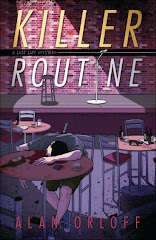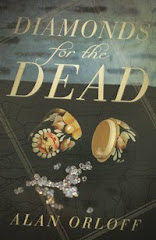Many writers ask this question:
Is it better to keep revising my first novel until it garners some serious interest from an agent/publisher, or should I ditch the first novel and write a second one?
Having faced this exact dilemma (as I'm sure others have), I say ditch the first one if it doesn't get some interest after you've given it your best shot. What does that mean? Write diligently, get in a critique group, revise and edit until it shines, then query the heck out of it.
After you've done that, however, I don't think there's any payoff spending another six months, or a year--or longer--working on something that's already proven to have little commercial interest. Sure, you could transform it into something awe-inspiring, but that's unlikely. Remember, we're talking about first novels here.
I believe your time is better spent working on a second manuscript, being sure to use all that you learned writing the first. There's a learning curve every writer must climb, and I think you climb it better (and faster) when you work on something fresh. New characters, new plots, new challenges.
I know the first manuscript I wrote wasn't fit to see the light (it resides, to this day, under my bed, guarded by mousetraps and hairy spiders). In fact, it took me a few more attempts before I had something publishable. With each manuscript, my writing improved greatly (the prose in that first manuscript? not pretty!).
Of course, I've seen/heard about successful books arising from years and years of revision. And if you've only got one story in you, then it behooves you to keep at it. But I think if your goal is to be a writer who will complete more than one book in your lifetime, you need to learn when to cut bait and start a new project.
Just my opinion. I'd love to hear yours.

















5 comments:
I completely agree with you. Work on something completely different. No one wants a sequel of something when the first book wasn't picked up! Or write the second book as a stand-alone if it IS part of a series. "Dyeing Shame" is a Myrtle Clover book at a now-defunct small press. I wrote "Pretty" as a stand-alone Myrtle Clover and it sold to Midnight Ink.
Elizabeth
Mystery Writing is Murder
Yep, this all makes sense, Alan. Tough to hear maybe, but eminently logical and on-point. THE take away, however, was that you keep a Jack Regan look-a-like under your bed.
Best Regards, Galen
Imagineering Fiction Blog
I agree, Jack. But if you stop revising, that doesn't necessarily mean you need to stop submitting that first piece. Times change, trends come and go, and that first novel might find a market later (even after you've written a couple more books).
The Troubleshooter, a novel I wrote with my brother many years ago, made it to audiobook almost 13 years after we wrote our first query. It was a crazy piece of luck that made it happen, but it happened.
Every writer gets better as time goes by. It's a hard lesson to learn, but a vital one nonetheless. It would be heartbreaking to put away that first novel after all the hours (months, years) one put into it, but it seems to be a fairly common experience.
Heavy sigh.
Elspeth
Elizabeth - Good point. Your second book probably shouldn't be a sequel, just in case the first one never sells.
Galen - I haul it out every Halloween and put it on the porch to scare the kids. Trust me, it terrifies them!
Patricia - Absolutely. If it's as good as you can make it (without getting crazy about it), keep querying while you write number 2.
Elspeth - Yeah, it can be hard to do. But I'm guessing most writers don't sell the first manuscript they complete. I've heard many writers say they've sold the third, fourth, or fifth novel they finished.
Post a Comment